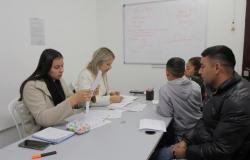In his commitment to democratize the Internet and make technology an engine of development for the country, the ICT Ministry designed the Colombia PotencIA Digital brand, a set of strategies based on three pillars: connectivity, digital education and innovation ecosystems, in addition to a transversal component, Artificial Intelligence and cybersecurity .
With these three axes, the entity seeks to take Colombia towards an inclusive and prosperous digital future, and guarantee that ICT and Artificial Intelligence generate development, investment and well-being for citizens.
As a result, the country has marked important milestones in technological matters. Precisely, in 2023, and according to a report by the venture capital firm Atlántico, Colombia is the third country that stands out the most in the digital transformation of Latin America, even above Argentina and Chile, thanks to its growing technological ecosystem. Likewise, a recent report published by the OEI and the CAF highlights Colombia as one of the countries in Latin America and the Caribbean with the best performances in digital transformation processes in the educational field.
“We are, from the regions, digitally transforming the territories, this way we will consolidate Colombia as a technology producer said the head of this portfolio, Mauricio Lizcano.
We want to democratize access and knowledge in Artificial Intelligence, so that it is everyone’s topic.
In addition to making the arrival of 5G networks a reality in Colombia, one of the achievements that stands out the most within the framework of the connectivity pillar is the installation of more than 1,500 antennas to guarantee the deployment of this fifth generation technology, which began its deployment first in the largest cities and little by little it will spread to the entire nation.
Likewise, with the ‘ConnectiVITY to change Lives’ program, developed by the company Internexa, the entity has managed to bring Broadband Internet to 400,000 homes in strata 1 and 2 in 178 municipalities of Nariño, Cauca, Valle del Cauca, Chocó, La Guajira, Amazonas, Vichada and Urabá Antioqueño.
They also highlight the achievements of the ‘Internet Boards – Connectivity Communities’ program, a revolutionary commitment with which they seek connect the most remote areas of the country, through the entrepreneurship of communities to become providers of their own Internet services.
The goal of the program is that 2,848 communities access this service, Of these, 1,640 will have satellite solutions and, with the arrival of 5G, it is expected that 1,191 educational centers in 233 municipalities will benefit from community access to the Internet through fiber optics.
MINTIC Courtesy MinTIC
The national government aims to train one million people in digital skills through four key programs: Senatic, Talento Tech, Generación ICT and Colombia Program. These cover the majority of the population, since can be accessed by boys and girls 8 years old onwards.
During the administration of Minister Lizcano, it was possible to unblock and reactivate the ‘Digital Centers’ program, a commitment with which the national government seeks to bring free Internet to rural communities. To date, the country has more than 13,000 schools connected with this program.
With the PotencIA program, development areas are identified to promote digital production units in each region. Through a diagnosis at the departmental level, areas with great potential are identified, such as TurismoTECH, AgroTECH and SaludTECH. These issues are addressed with key strategies to enhance innovation and contribute to the socioeconomic development of the country.
An example of the results of the program is the case of Cartagena, where, together with the Chamber of Commerce and the city’s mayor’s office, a mobile application to support the tourism sector, condensing, in one place, the offer, tours, plans, maps and even a space to report price abuses.
With the aim of promoting and strengthening knowledge about Artificial Intelligence, the ICT Ministry is working on the construction of two large AI development centers, one in Zipaquirá and the other in Usme, in Bogotá, which are complemented by 75 Potencia Learning Centers that will be built throughout the country.
These programs and projects have been key to Colombia’s digital transformation, and ratify the commitment of this technological portfolio in connect 85 percent of the country.
MORE CONTENT*. A project of Special Editorial Contents of El Tiempo and Portfolio in alliance with the ICT Ministry.






